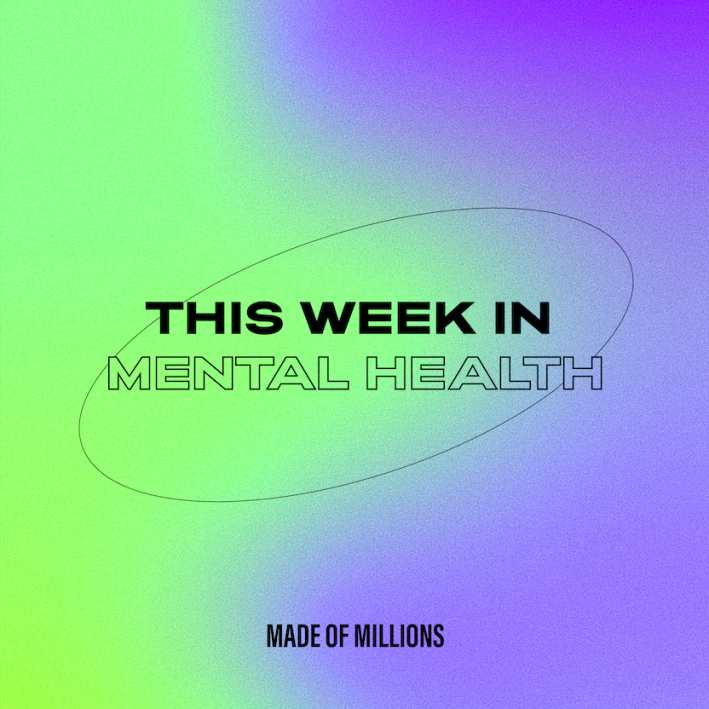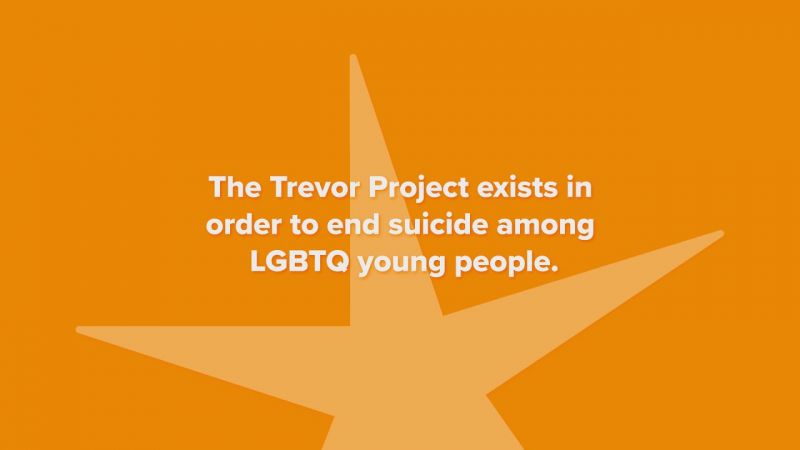This Week In Mental Health
The latest on research and advocacy for the week of May 17th.
Written by Esther Fernandez

01 Researchers look at schizophrenia medication, LGBTQ youth mental health, treatment for alcohol use disorder, and more.
02 Olympian Raven Saunders, Youtuber Emma Chamberlain, and CEO of Nike John Donahoe start conversations around mental health.
Conversations about mental health have grown exponentially over the last decade, with more and more people committing to personal and collective wellness. While we have a ways to go before mental health awareness, education and treatment are accessible to all, each day brings new and positive strides within the field.
Our This Week In Mental Health series covers the latest happenings in research, treatment, human interest stories, and more. Stay updated on new developments so you’re better equipped to navigate the world, and most importantly, your own recovery.
Here’s what’s happening the week of May 17th.
Medication
Commonly Used Drugs for Schizophrenia Linked to Greater Cognitive Impairment
Medications that are often used for treating schizophrenia may worsen cognitive function. Researchers from multiple institutions led by the University of California San Diego School of Medicine looked at medical records of over a thousand people with schizophrenia. Around one in four had ACB scores of six or above, and 63 percent had an ACB score of three or above. ACB stands for anticholinergic cognitive burden, referring to the inhibition of brain signaling and other body functions when using psychotropic medications. In previous studies, an ACB score of three is associated with cognitive dysfunction and higher dementia risk.
Research
The Trevor Project Releases Results of Survey on LGBTQ Youth Mental Health
The Trevor Project just released their findings from their 2021 National Survey on LGBTQ Youth Mental Health. Researchers collected data from 35,000 youth in the U.S. from October to December 2020. The results highlight the topics of suicide, finding support, COVID-19, transgender and nonbinary youth, food insecurity, conversion therapy, discrimination, affirming spaces, and finding joy.

"We're Here For You" - Trevor Project
Alcohol Problems Severely Undertreated
Less than one in ten people with alcohol use disorder receive treatment, a new study shows. The Washington University School of Medicine in St. Louis analyzed data from over 200,000 people from 2015 to 2019. Of the 8 percent of people who had alcohol use disorder, 81 percent had visited a doctor's office, hospital, or clinic within the last year. From those visits, only 5 percent were given the option to learn more about treatment, and only 6 percent were able to receive treatment.
Using Diet Pills And Laxatives For Weight Control Linked To Future Diagnosis Of An Eating Disorder
A new study shows how diet pills and laxative use may be a predictor for eating disorders. Researchers from University of Minnesota School of Public Health studied data from over a thousand female participants who were surveyed during a period of 10+ years. For those who used diet pills, they had a 258 percent increased risk in getting an eating disorder diagnosis, and those who used laxatives had 177 percent increased risk.
Study Finds Evidence Emotional Support Animals Benefit Those With Chronic Mental Illness
Emotional support animals may help people with chronic mental illnesses. A study from The University of Toledo paired a dog or cat from a shelter with participants who were low-income, at risk for experiencing social isolation, and had a referral from a mental health provider. Researchers tested biomarkers and surveyed participants. After 12 months, it was found that participants had less depression, anxiety, and loneliness.
Brain Scans Could Offer Sign Of Postpartum Psychosis Risk
A study of 59 women suggests that brain scans could help detect postpartum psychosis risk. Of the 59 women studied, 39 were considered at risk due to bipolar disorder or schizoaffective disorder diagnoses, or previous postpartum psychosis episodes. Weeks after delivery, brain scans were conducted while the women performed tasks, and it was found that all of the women who were at risk for psychosis showed less brain network connectivity, and longer reaction times to the task activity.
Advocacy
Olympian Raven Saunders Looks Toward Tokyo, With A Focus On Mental Health
Olympic shot putter Raven Saunders is featured in the one of the latest PBS mini-documentaries. Saunders was always a star athlete, often using sports as a coping mechanism for her childhood trauma. While she succeeded enough to go to the Rio Olympics in 2016, she also experienced burnout and suicidal ideation. After being hospitalized and going through intensive therapy, she is now preparing to qualify for and win gold in the Tokyo Olympics while keeping her mental health a priority.

An Olympic Athlete Takes on Depression | PBS Short Docs
Emma Chamberlain Talks Anxiety, Burnout, and Perfectionism
Youtuber Emma Chamberlain opened up to Vogue about her mental health, both growing up and throughout the pandemic. She describes her separation anxiety during childhood, and her recent fears surrounding her public life online. She also mentions perfectionism, intrusive thoughts, coping with panic attacks and burnout, and depression.
Why Nike And Its CEO Are Focusing on Mental Health
John Donahoe, the CEO of Nike, talked about his journey with mental health and wellness on Yahoo Finance. After hearing an eye-opening presenter at his former job in 1988, he has since learned how to take care of himself, ask for help, and be an advocate in the workplace. He describes the initiatives they have taken at Nike, such as having counselors, wellness memberships, family support, and a partnership with Crisis Text Line.
Support our work
We’re on a mission to change how the world perceives mental health.



















